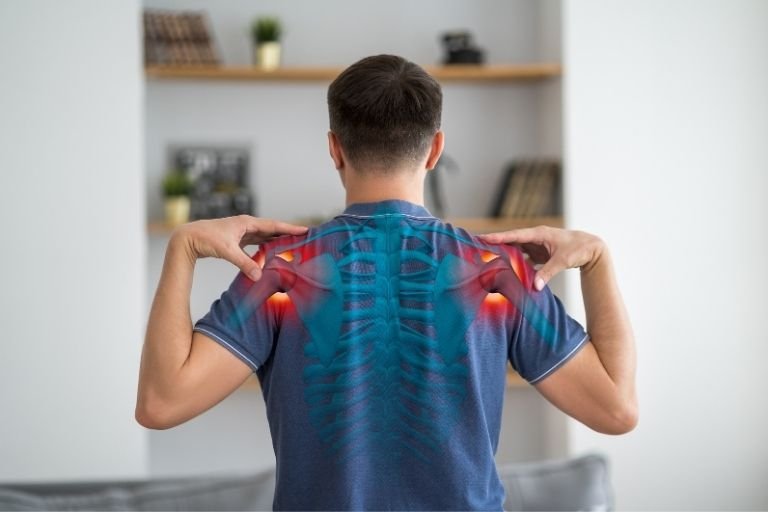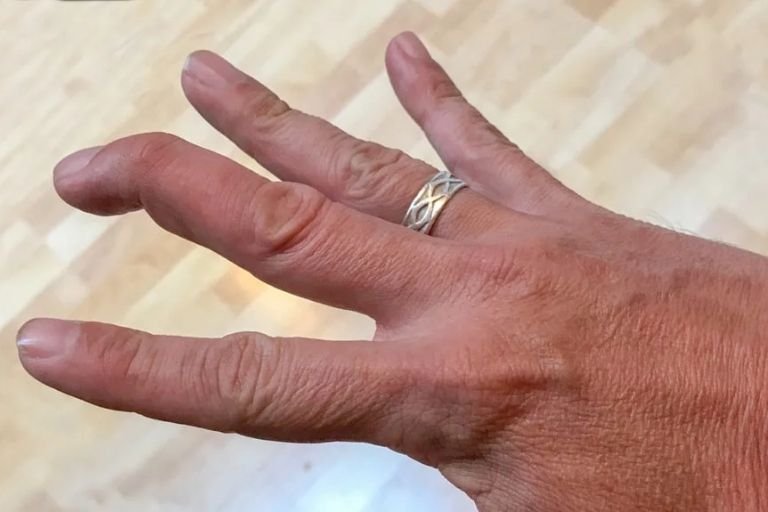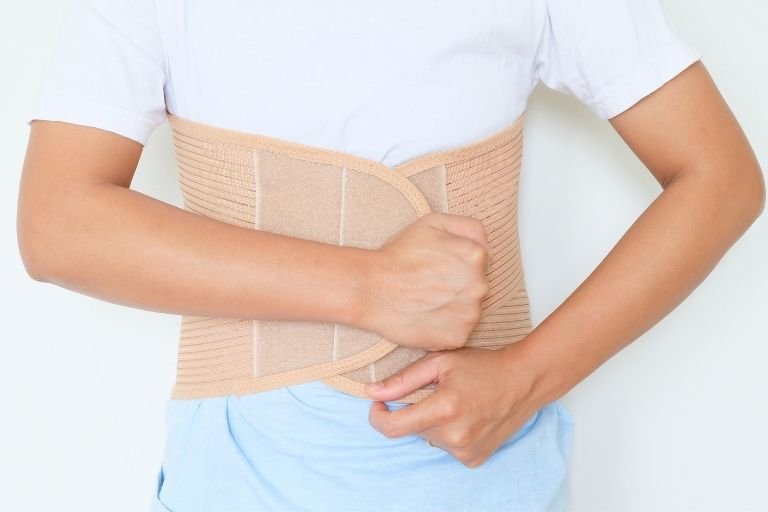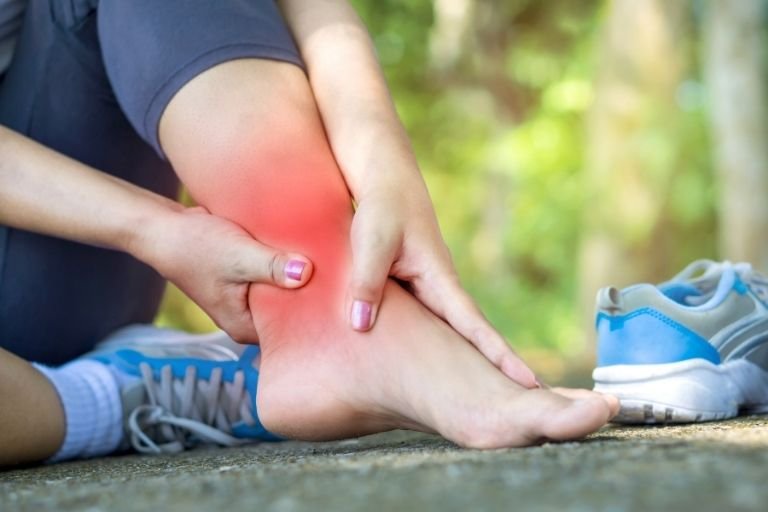- Fitwell Physiotherapy
Rotator Cuff Injury
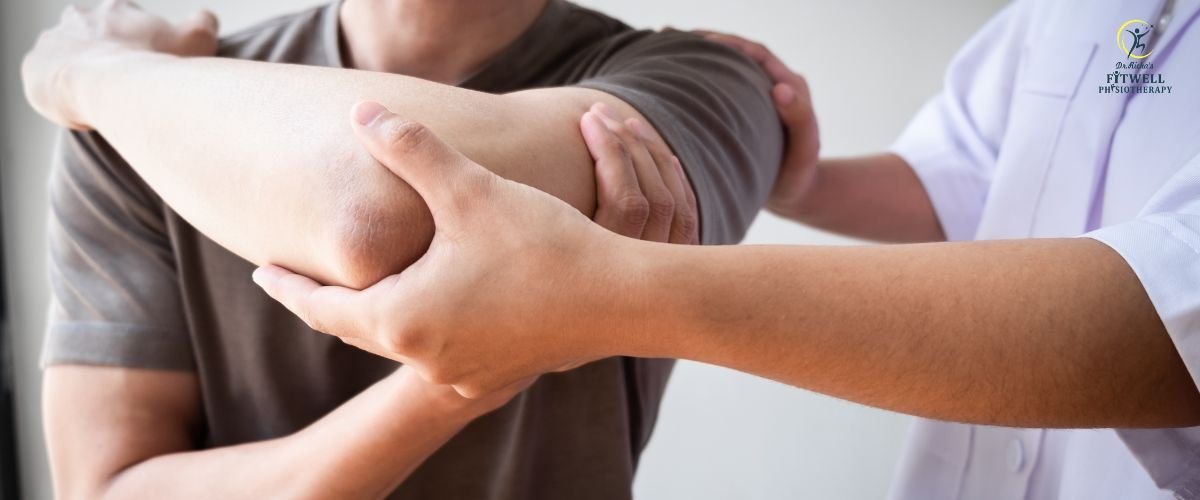
Rotator cuff injuries are common and can cause significant discomfort and limitation in shoulder movement. The rotator cuff is a group of muscles and tendons that surround the shoulder joint, providing stability and enabling various shoulder movements. When these muscles and tendons are strained or injured, it can lead to a range of symptoms and complications.
Please submit your details below.
Symptoms:
- Pain: The most common symptom of a rotator cuff injury is shoulder pain, which may be dull, aching, or sharp. The pain is often felt deep in the shoulder and may worsen when lifting or rotating the arm.
- Weakness: Weakness in the affected shoulder can make it difficult to perform everyday tasks, such as lifting objects or reaching overhead.
- Limited Range of Motion: Individuals with a rotator cuff injury may experience difficulty in moving their shoulder, especially when lifting the arm or rotating it outward.
Causes:
- Overuse: Repetitive overhead motions, such as those involved in sports like baseball, tennis, or swimming, can lead to overuse injuries of the rotator cuff.
- Trauma: A sudden impact or fall onto the shoulder can cause acute tears or strains in the rotator cuff muscles and tendons.
- Age: As people age, the tendons of the rotator cuff can degenerate, making them more prone to injury, even with minor strain.
When to See a Physiotherapist:
It’s essential to seek medical attention if you experience persistent shoulder pain or have difficulty moving your shoulder. A physiotherapist can assess your symptoms, conduct a physical examination, and recommend appropriate treatment. Seek medical attention promptly if you experience severe pain, sudden weakness in the arm, or inability to move the shoulder.
Risks:
- Chronic Pain: Without proper treatment, a rotator cuff injury can lead to chronic shoulder pain and disability.
- Loss of Function: Severe rotator cuff injuries can result in significant limitations in shoulder movement and function.
- Tear Progression: If left untreated, a partial tear in the rotator cuff can worsen over time, leading to a complete tear that may require surgery to repair.
How to Prevent:
- Proper Technique: When engaging in activities that involve repetitive shoulder movements, such as sports or weightlifting, use proper technique to reduce the risk of injury.
- Strength and Flexibility Exercises: Regularly perform exercises to strengthen the muscles surrounding the shoulder joint and improve flexibility.
- Warm-Up and Cool Down: Always warm up before exercising and cool down afterward to prepare the muscles for activity and prevent strain.
- Avoid Overuse: Avoid overloading the shoulder joint with repetitive motions, especially without adequate rest periods.
Treatments:
- Rest and Immobilization: Resting the shoulder and avoiding activities that exacerbate symptoms can help relieve pain and promote healing. Immobilization with a sling may be necessary for severe injuries.
- Physical Therapy: A physiotherapist can develop a tailored exercise program to strengthen the muscles around the shoulder joint, improve flexibility, and promote recovery.
- Medications: Nonsteroidal anti-inflammatory drugs (NSAIDs) can help reduce pain and inflammation associated with a rotator cuff injury.
- Steroid Injections: In some cases, corticosteroid injections may be administered directly into the shoulder joint to reduce inflammation and alleviate pain.
- Surgery: If conservative treatments fail to provide relief, surgical intervention may be necessary, particularly for severe tears or injuries that impair shoulder function.
Rotator cuff injuries can vary in severity, from mild strains to complete tears requiring surgical repair. Early recognition and appropriate treatment are essential for optimal recovery and preventing long-term complications. It’s essential to follow medical advice and participate actively in rehabilitation to regain shoulder strength and function.
Frequently Asked Questions
Diagnosis typically involves:
- Physical Examination: A doctor will assess your shoulder’s range of motion, strength, and areas of tenderness.
- Imaging Tests: X-rays, ultrasound, or MRI scans may be used to visualize the extent of the injury and rule out other conditions.
- Medical History: Information about how the injury occurred and any previous shoulder issues.
Treatment can vary based on the severity of the injury and may include:
- Rest and Activity Modification: Avoiding activities that exacerbate the pain.
- Physical Therapy: Exercises to strengthen shoulder muscles and improve flexibility.
- Medications: Pain relievers and anti-inflammatory drugs.
- Corticosteroid Injections: To reduce inflammation and pain.
- Surgery: In cases of severe tears or when conservative treatments fail, surgical options like arthroscopic repair may be considered.
While not all rotator cuff injuries can be prevented, you can reduce your risk by:
- Regular Exercise: Strengthening shoulder and upper back muscles.
- Proper Technique: Using proper form when lifting objects or performing overhead activities.
- Warm-Up and Stretching: Ensuring proper warm-up before engaging in physical activities.
- Ergonomic Adjustments: Modifying your workstation or activity to reduce strain on the shoulder.
- Avoiding Repetitive Strain: Taking breaks and varying tasks to avoid overuse injuries.






















